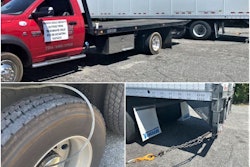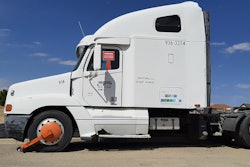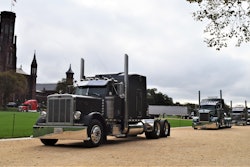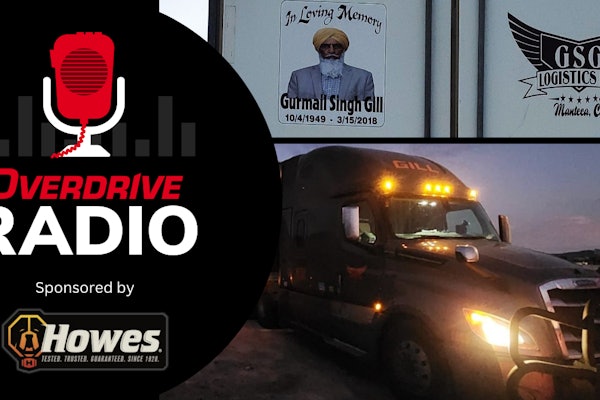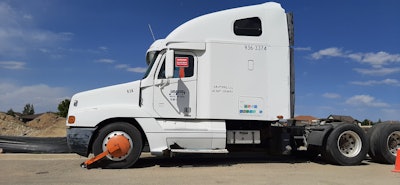 A new rule in process in Colorado would place a statewide prohibition on the booting of any vehicle that is occupied.
A new rule in process in Colorado would place a statewide prohibition on the booting of any vehicle that is occupied.With new regulations nearing the end of the process in the state where the “Denver boot” was first built and used in the middle part of the last century, Colorado could show a positive path forward for other states with one particular rule that will likely be welcomed news to many truckers.
Owner-Operator Independent Drivers Association Manager of Government Affairs Mike Matousek notes the most important provision among those regulations is one that expressly “prohibits booting or immobilizing an occupied vehicle,” with exceptions made with intervention of a law enforcement officer.
Booting companies will be forced to actually “come up to the vehicle and knock on the door” before holding the vehicle hostage, Matousek adds. “That includes a commercial vehicle.”
Though some states regulate booting companies and practices, Matousek knows of none that have adopted this particular provision on a statewide basis. He and other watchers see the Colorado rules as not only beneficial there, but providing a model for potential rules in other states or even at a national level.
Those watchers include Michigan-based small fleet owner Leander Richmond, whose efforts to push for a prohibition on booting occupied vehicles have to date fallen on deaf ears in Congress.
“Do we have to wait for 49 other states to [individually] line up and decide it’s a problem?” he asks. The U.S. Congress “could kill most of the truly onerous booting of trucks by banning it when the truck is occupied,” he says, full stop.
In Colorado, OOIDA has been engaged, receiving clarification from the Colorado Public Utilities Commission about their rules’ application to trucks. “They didn’t make a clarification” to the rules themselves, says Matousek, “but they did say they do apply” to any vehicle, including heavy-duty tractor-trailers.
Rule No. 6817 in the draft proposal also puts a statewide cap on the removal fee for a boot at $120, and a $25 maximum charge for situations where the vehicle’s owner or operator returns to the vehicle before full boot install. If those figures seem high, they’re well below some of the fees reaching into the thousands both Matousek and Richmond have seen firsthand, whether invoices from companies operating overnight at Kentucky or other Walmart parking lots or in otherwise unused commercial lots in North Carolina, Georgia and elsewhere, where Richmond’s drivers have run into problems.
“A good tow operator may do booting as a part of their business,” says Matousek. “Most of them probably would agree there’s a role for booting vehicles, but when you’re booting an occupied motor vehicle it raises questions when the fee is $2,000 or $3,000 — there’s no justification for that amount. Booting devices don’t even cost that much brand-new. It should be criminal. It’s crazy they’ve been getting away with this as long as they have.”
The Colorado rules are the result of actions of its legislature, which directed the regulation of booting companies following attention brought to booting practices by a citizen’s lawsuit that argued booting companies should be subject to already existing state regs for tow companies. The small-claims suit yielded a result that refunded the booter’s charged amount that was above what the company’s contract with the property owner stated, but said nothing about state regulation. Then, outreach to legislators began, resulting in the state congress’ direction to promulgate the new regs.
The rules are pending approval of a recommended decision issued after a few modifications this week.
Matousek believes Colorado’s approach could provide a model for other states when it comes to vehicle immobilization devices, particularly with respect to the prohibition on booting an occupied vehicle, with one glaring exception.
“Their regulatory process is something other states should look at,” he says. But he also worries that no mention in the regs of what are called “barnacles” in the trade – devices that suction to parts of the vehicle, usually the windshield, only removable by a technician – might ultimately prove a gaping loophole for booting operators.
“The legislative definition was overly narrow in defining a vehicle booting company,” Matousek says, to potentially exclude such windshield devices. “We asked that they change the definition [included in the regulations] to include barnacles.” Matousek says, but Colorado PUC noted their hands were tied by the legislative language.
“We’ll see if it becomes a problem” down the road, Matousek adds.


